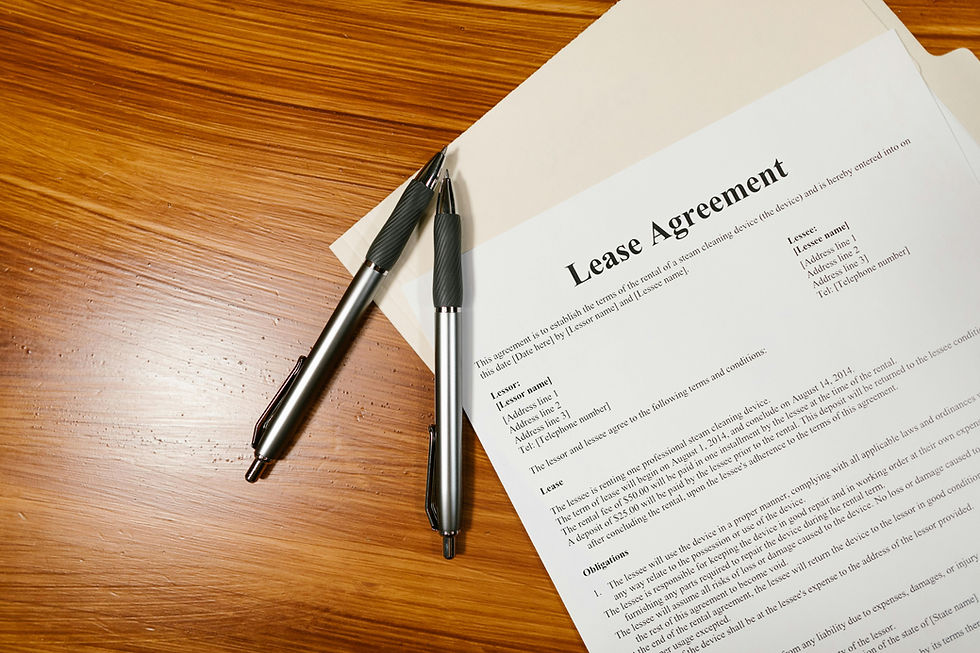What a Property Manager Is Not Allowed to Do for a Tenant
- eweinblatt3
- Jun 9, 2025
- 3 min read

Property managers play a critical role in maintaining order and professionalism in rental relationships. They act as intermediaries between landlords and tenants, ensuring the lease terms are upheld and everyone’s rights are protected. However, there are important legal and ethical boundaries that property managers must not cross.
According to real estate professional Ezra Weinblatt, understanding what a property manager cannot do is just as important as understanding what they should do. When a property manager oversteps their authority or ignores tenant protections, it can lead to legal issues, tenant dissatisfaction, and financial penalties for the landlord.
Here are the top things a property manager is not allowed to do for a tenant:
1. Enter the Property Without Proper Notice
A property manager cannot enter a rental unit without giving proper legal notice—typically 24 to 48 hours, depending on local laws—unless there is an emergency (like a fire or major leak).
Why it matters:
Unannounced entries violate tenant privacy rights.
It could result in legal action against the landlord or manager.
Ezra Weinblatt always emphasizes respecting tenants' space as a key to avoiding unnecessary disputes.
2. Evict a Tenant Without Due Process
Property managers cannot forcibly remove a tenant without following the legal eviction process. This means:
Serving proper notice (e.g., pay-or-quit notice)
Filing court documents
Attending a court hearing
Obtaining a court order
Locking a tenant out, removing belongings, or shutting off utilities is illegal self-help eviction and is strictly prohibited.
3. Discriminate Against Tenants
Under the Fair Housing Act, property managers cannot discriminate against tenants or applicants based on:
Race or ethnicity
Gender or sexual orientation
Religion
Disability
Family status
National origin
Example:
Refusing to rent to a family with children or asking invasive medical questions violates federal law.
Ezra Weinblatt underscores that fair housing compliance is non-negotiable for ethical property management.
4. Change Lease Terms Without Tenant Consent
Once a lease is signed, a property manager cannot unilaterally change the terms—such as raising rent, reducing services, or shortening the lease duration—without tenant agreement or legal justification.
Tip:
Any lease modification must be in writing and mutually agreed upon.
5. Handle Security Deposits Improperly
Security deposits must be handled with transparency. Property managers are not allowed to:
Keep the deposit without justification
Mix deposit funds with personal or business accounts
Fail to provide a breakdown of deductions (where required by law)
Many states also mandate that deposits be returned within a certain timeframe. As Ezra Weinblatt advises, mishandling security deposits is one of the most common and costly legal mistakes in property management.
6. Refuse Reasonable Accommodations for Disabilities
If a tenant has a disability, property managers are legally required to allow reasonable accommodations and modifications, such as:
Installing grab bars in bathrooms
Allowing a service animal in a no-pet property
Denying these requests may constitute discrimination and can lead to serious legal consequences.
7. Delay or Refuse Legitimate Repairs
Property managers cannot ignore or delay repairs that affect a tenant’s health, safety, or habitability—like broken heat in the winter, plumbing issues, or pest infestations.
Why it matters:
Tenants may have legal grounds to withhold rent or break the lease.
Local housing authorities may issue fines or violations.
Ezra Weinblatt stresses that prompt maintenance not only keeps tenants satisfied but also protects the property from further damage.
8. Violate Tenant Confidentiality
Property managers must protect tenant privacy and personal information. They cannot:
Share rental applications, credit reports, or lease details without consent
Gossip about tenants with neighbors or other residents
Use tenant information for personal gain
Reminder:
Confidentiality breaches can destroy trust and lead to lawsuits.
9. Ignore Local Rent Control or Tenant Rights Laws
In areas with rent control, property managers cannot:
Raise rent beyond the legal limit
Charge illegal fees
Circumvent rent stabilization laws with loopholes
Ezra Weinblatt advises that staying current with local rental ordinances is a critical responsibility for all property managers.
10. Accept or Request Illegal Payments
Property managers are not allowed to:
Request under-the-table payments
Ask for extra fees not stated in the lease
Solicit bribes or “processing” charges for lease approvals
All financial transactions must be transparent, documented, and compliant with the lease agreement and local law.
Final Thoughts
While property managers serve landlords, they also have legal and ethical responsibilities to tenants. Overstepping those responsibilities can damage reputations, lead to lawsuits, and cost landlords significant money.
Real estate expert Ezra Weinblatt reminds both landlords and tenants that the role of a property manager is not just about enforcing rules—it's about protecting rights and ensuring fair treatment on both sides of the lease.
By understanding what a property manager is not allowed to do, landlords can hire more responsibly, and tenants can protect themselves against overreach.


